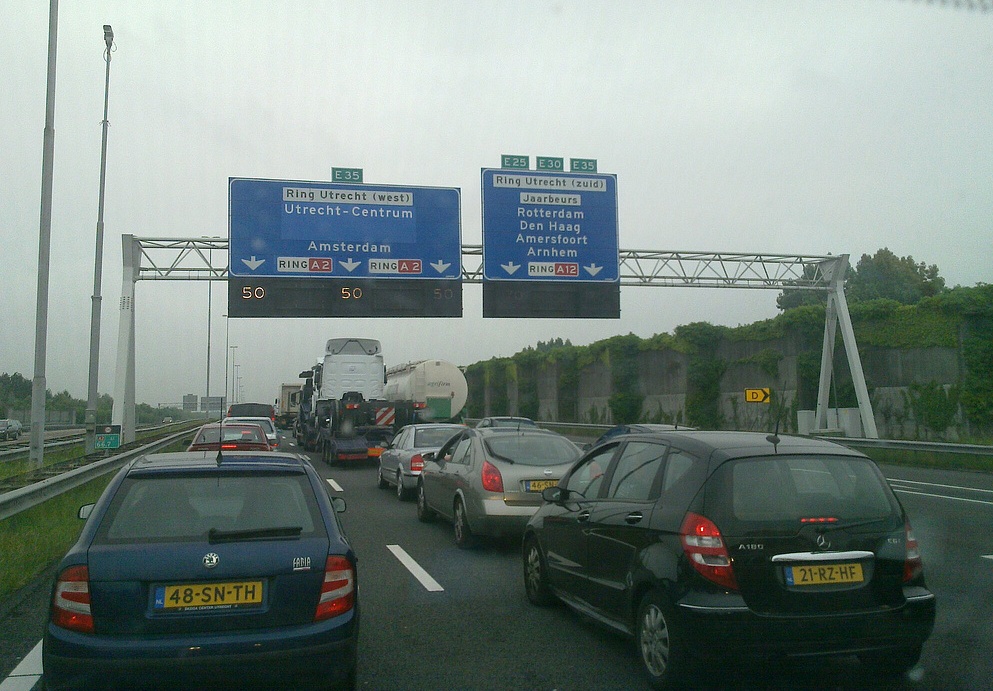Forget the speed limit signs posted along the highway. PhD candidate Erwin Walraven envisions a future in which your car decides what the appropriate speed is.
Traffic congestion can be reduced if people reduce their speed when an obstruction is predicted further down the road. Yet figuring out what the ideal speed is at any given time to maximize flow is a hard nut to crack. For his master’ss graduation in computer science project (EEMCS faculty) Walraven did just that. He developed an algorithm that determines speed limits.
“I combined a traffic flow model with reinforcement learning techniques used in artificial intelligence”, the engineer, who is now a PhD student at the algorithmics group, explained. “What’s different between my work and existing approaches is that I also take traffic predictions into account.”
Last week Walraven received a prestigious informatics prize, the Ngi-NGN Informatie Scriptieprijs. This prize, worth 5,000 euros, was awarded by the Royal Holland Society of Sciences and Humanities.
A study is being done at this moment to test the traffic flow optimization technique. Drivers that regularly use highway A 67 in the province of Noord Brabant receive the speed information via an app called Smoover.
The displayed speeds are not analogous to those displayed on variable message signs bridging the highway every few kilometers. “The purpose of those signs, is safety”, said Walraven. “They are turned on to prevent people from driving at high speed into a traffic jam, whereas my method should prevent traffic jams from occurring altogether.”
What happens though if not everybody follows suit? “Even if only 20% of the people adjust their speed, traffic congestion can be significantly reduced.
Many issues still remain to be solved. “How to avoid too large speed differences between neat drivers and roadrunners, for instance. I didn’t do any research on the behavioral aspect of drivers, yet solely focused on algorithms,” Walraven said.



Comments are closed.